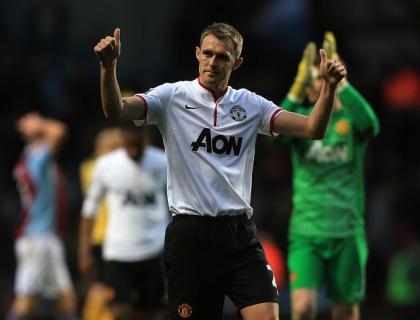
The 29-year-old returned after almost 12 months out of action in Sunday's 3-0 win at Aston Villa.
Fletcher has struggled for virtually three years with ulcerative colitis, a condition that proved so serious it eventually required three lots of surgery.
Now recovered, the midfielder is eager to rejoin the fray after being helpless to prevent an awful start to David Moyes' reign which, prior to last weekend, had seen United slump to ninth spot in the Premier League.
"It is hard enough watching the lads win," he said.
"At least if they do that you enjoy the moments.
"It is a lot more difficult when we are not.
"We need to go on a winning run and put ourselves in a position where people are saying we are still there.
"I want to help us win matches to bring back the success we are used to."
Fletcher is in contention to play some part in Wednesday's Capital One Cup quarter-final at Stoke, declaring: "I don't want to take it easy. I've done enough of that."
Certainly if United's squad show as much character as Fletcher has needed in recent months, they will be fine.
For one of the most likeable characters in the game, Fletcher knew it was not just his football career that was on the line if surgery did not prove successful, his entire life would have been affected.
"I couldn't leave the house," he said.
"Simple stuff, like taking my kids to the park, going for a meal with my wife.
"The nature of the illness meant I just couldn't do it.
"There was the exhaustion side as well.
"I always believed one of the medications would work. Unfortunately that wasn't the case.
"Ultimately that was the reason I went for the operation."
Although Fletcher's surgeon was confident surgery would prove successful, the consequences of failure were laid bare.
Supposedly in the prime of a career that had already brought him four Premier League titles, an FA Cup and a couple of League Cups, it was a bleak prospect.
"There was a day in May when we said 'this is it'. Once I came out of that operation I would know whether it had worked or not.
"There were no guarantees. If the operation was not a success there was no way I would be able to play football and my everyday life would have been very difficult.
"It was very emotional. There was a lot of fear and anxiety.
"I put all my trust in the surgeon."
Source: PA
Source: PA